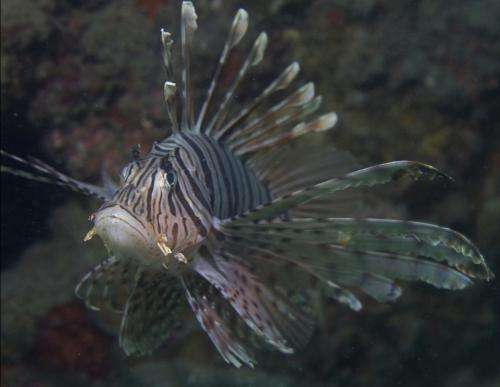Amateur divers share species data for science

Species observations from thousands of scuba divers all over the world are now freely accessible via the Global Biodiversity Information Facility.
The citizen science platform Diveboard has published over 15,000 records from the 'electronic log books' submitted by its community of nearly 100,000 registered divers.
The dataset, available on the GBIF portal, includes records of species occurrences from dives in all the world's oceans, as well as many inland water bodies.
The data will be updated as divers contribute more species observations, using GBIF's new real-time indexing system in which new or modified data can be seen on the portal within minutes or hours of being entered by the data publisher. Diveboard is the first new dataset to be indexed using this system.
The idea for Diveboard originated from French divers Alexander Casassovici and Pascal Manchon, who wanted to design an electronic system to enable scuba divers to record details of their dives once they reached the surface.
"We were sad that we couldn't do much from our log books because we had the worst handwriting," Casassovici recalls. "The data in our log book was basically lost.
"We started to aggregate the data we were creating through the dive computer, taking pictures, and everything we recorded on the dive. We tried to narrow down the species we had seen in a given spot, and to build a tool that would crystallize the experience that scuba divers have underwater."
The Diveboard team hoped the project would build a bridge between casual recreational divers and marine biologists, providing data that could help researchers understand trends such as the impacts of climate change and spread of invasive alien species.
The electronic log book is now available in the form of a computer plugin that enables Diveboard to aggregate data from all dives on its own website, using tools to help divers to identify species through the Encyclopedia of Life, a GBIF partner organization.
The value of such data to GBIF's global network of species occurrence datasets was recognized by Dimitri Brosens, data liaison officer for GBIF Belgium and a keen diver himself. Collaborating with Diveboard and colleagues in the group Datafable, Brosens worked to bring the species observations by divers into formats suitable for publication through GBIF.
"With the help of Diveboard, we were able to standardize the data, add metadata, and publish the dataset as open data in a matter of weeks," says Brosens. "I'm excited about the possibilities this will offer biologists everywhere as a way to support their research with citizen science-generated data."
Provided by Global Biodiversity Information Facility














